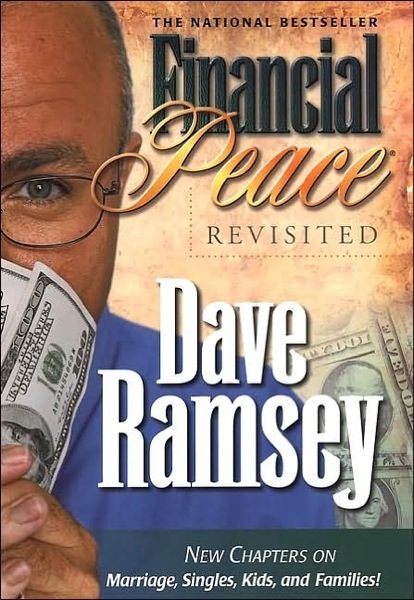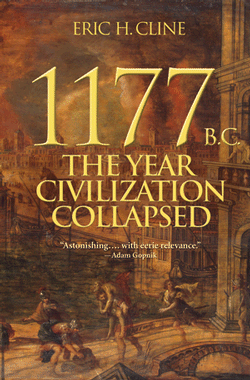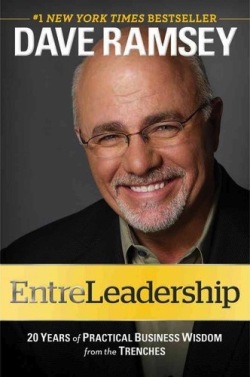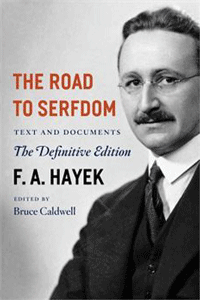 Personal finance books can sometimes sound about as exciting as an economic history textbook. But personal finance has a profound impact on the average person and family. Dave Ramsey is a radio show personality based in Nashville who has become successful as a speaker and author in the area of personal finance.
Personal finance books can sometimes sound about as exciting as an economic history textbook. But personal finance has a profound impact on the average person and family. Dave Ramsey is a radio show personality based in Nashville who has become successful as a speaker and author in the area of personal finance.
His first book, Financial Peace, has grown into a seminar, course and nationwide educational phenomenon having literally thousands of centers (mostly churches) that host the personal finance course called "Financial Peace University". The goal, as the title indicates, is to train people to gain peace in the area of finances.
In reading through this book, I started off with a fairly critical perspective. I am not the kind of person who likes listening to radio personalities that publicly berate callers on the topic of their “expertise”. I knew that Ramsey had a public persona of hard-nosed and I feared his book would be pompous and self-aggrandizing. I was wrong. “Financial Peace Revisited” is a pointed book, for sure, but it is tempered with the care of a person who has lived through real life. Some of the book relates Ramsey’s personal story of rags to riches to rags and back again- including growing a successful real estate business that crashed and burned, and his later recovery and learning process out of personal debt into long term financial “peace”. It is from this personal experience that Dave Ramsey tells not only his story, but the touch-stones of common sense that led him away from the common American family cycle of financial mismanagement.
In his book, Ramsey articulates compact truths that he calls “peace puppies” that are the foundational points of his thesis. One can’t say that the points are revelatory- but good advice rarely is. “Financial Peace” expounds the simple and clear truths of personal finance that many know, but few actually live. This is Ramsey’s main contention- we don’t live out the common sense items that would allow our money and careers to work for us. Instead, we allow the borrowing of money (normally to buy unneeded things) become the master and driver of our lives. It is this borrowing cycle that drives American personal finances into common and regular ruin.
Ramsey’s biggest and most salient point in this book is the belief that debt (all debt) is to be avoided and countered. There are plenty of other items, but they all serve to address this primary issue. But the brilliance of Ramsey’s approach is not just the common sense, but the emotional recovery of the debt-laden Americans who work Ramsey’s plan to come to financial peace. The biggest of the “smart moves” that fuel a “can-do” attitude in Ramsey’s followers is his recommendation that they pay the smallest bills first, and as those smaller bills get paid off the amounts used to pay those off get rolled cummulatively into the next largest bill. His “debt snowball” is genius, but almost counter-intuitive.
But it works. By paying off small bills first Ramsey knows that his customers will be feeling the emotional encouragement of seeing bills actually paid off. This heightens their awareness of the positive outcomes of their actions, giving them emotional fuel to continue paying off debt and working their recovery plan. In addition, the monetary power of those small debts being paid off cummulatively gets unleashed on larger and larger bills. Practically and mentally, the momentum is placed in the realm of those who follow his plan. In fact, he challenges people not to try to do too much too fast, for fear that this will only cause them to hit the emotional wall when the recovery from financial distress begins to drag on for many months and years.
There are literally dozens of great points in this book, and few errors. The only complaint I have with this book is its outdated, and somewhat unrealistic “positive” saving scenarios. In the book, Ramsey expounds that compound interest works powerfully against the consumers- and this is right. He says that if we save we can reverse this trend not only by not building up more debt (breaking the cycle of increasing debt) but we can use interest bearing savings options to let the money work for the consumer. But his oft-repeated examples are nowhere close to reality. The books cites, in a few examples, 8-12% return on compounding savings, which isn’t true in any consumer bank in America (and hasn't been in recent modern history). It isn’t true in money market funds and it is barely even true in mutual funds these days. There has never been an era lasting more than a year or two when most consumers could get a reasonable return on savings (especially when compared against inflation) without playing the stock market through mutual funds, but this is not how Ramsey says it. The point is, this detail could easily be updated and adjusted to reality to give the book more credibility- and it would be good if it were. To Ramsey's credit, he does get into details about how to invest later in the book, dealing with various investment vehicles that could give the reader the returns he talks about. Just a bit more differentiation between "savings" and investment I felt were needed for the scenarios presented in the first half of the book to make sense.
Beyond that, the book is very nice to read, quick to understand and support to those who actually want to “do it”!
One very nice feature is the regular end-of-chapter summaries by Sharon Ramsey (Dave’s wife) who takes a spousal perspective on how the main points of each chapter effected her life. This is a very nice contrast to the “go get it” approach of the author and gives the book some balance. Overall, this is a very good book, that contains not only great personal financial advice but seems to have proven itself worthy of the thousands of people who have taken Ramsey’s advice and gotten themselves out of financial struggles.
Amazon Link: http://amzn.to/17G2EiI
Review by Kim Gentes
 1177 BC,
1177 BC,  The Year Civilization Collapsed,
The Year Civilization Collapsed,  Turning Points in Ancient,
Turning Points in Ancient,  ancient history,
ancient history,  economics,
economics,  egypt,
egypt,  eric cline,
eric cline,  history,
history,  politics,
politics,  sea peoples,
sea peoples,  societies,
societies,  war in
war in  Ancient History,
Ancient History,  Art,
Art,  Bible,
Bible,  Book Review,
Book Review,  Economics,
Economics,  Geopolitical,
Geopolitical,  History,
History,  Leadership,
Leadership,  Linguistics,
Linguistics,  Literature,
Literature,  Old Testament,
Old Testament,  Science,
Science,  Writing
Writing 



